Focusing on integrating organic and inorganic material into her weavings, fiber artist Andie Grande highlights their existing uniqueness. Learn more about this artist and her work by visiting her website.
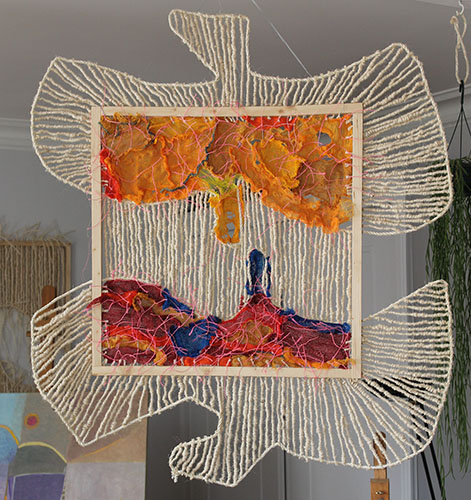
“Parade” Sisal and Synthetic Fibre, 48″ x 48″
Working with humble materials such as the sisal fibre and refuse synthetic fibre orients my attention to the way we relate to matter. I’m interested in considering how useful these everyday materials are and yet how easily we overlook them. In doing so, something is broken in the way we connect to them. Something precious is lost.
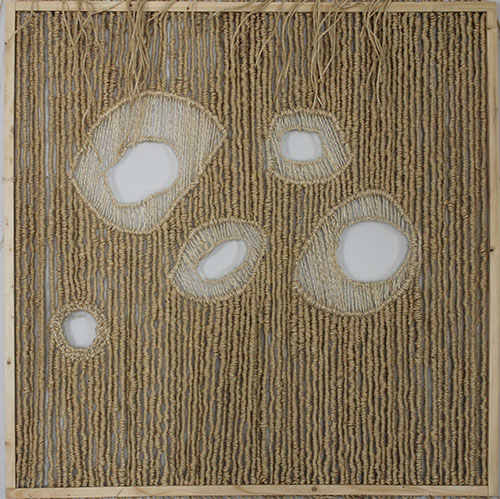
“Inner Circles” Sisal Wrapping String, 48″ x 48″
To me the artist’s role is to create and maintain an ever-changing relation to the material world by exploring all facets and allow it to deploy its full potential. My approach is primarily to consider materials as a resource for creativity, which means that it can never be labelled as useless or even junk.
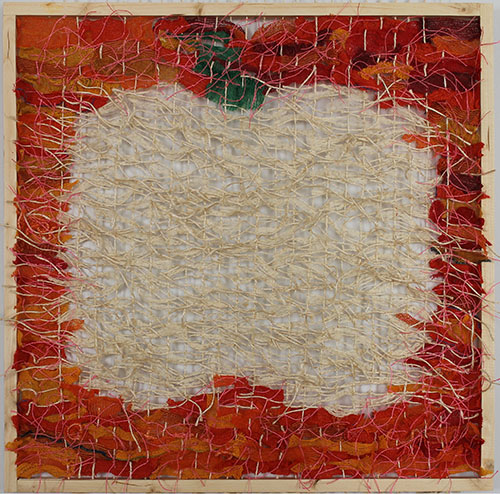
“New App” Sisal and Synthetic Fibre, 36″ x 36″
Stripping these fibres and plastics of their useful connotations provides a new setting for the fresh to unfold. In this creative space, a renewed image of the material comes to the foreground.
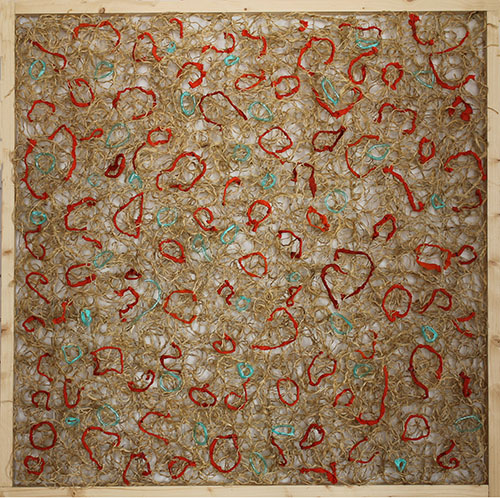
“Threads and Bubbles” Sisal and Synthetic Fibre and Plastic, 48″ x 48″
I’m interested in much more than making the new from the old, as this is still a circular motion that entraps us within the utilitarian pattern of consumerism. Showcasing and appraising these resources for their inherent virtues beyond any tendency toward appropriation opens up new venues where an unexpected bond arises between matter and viewer.
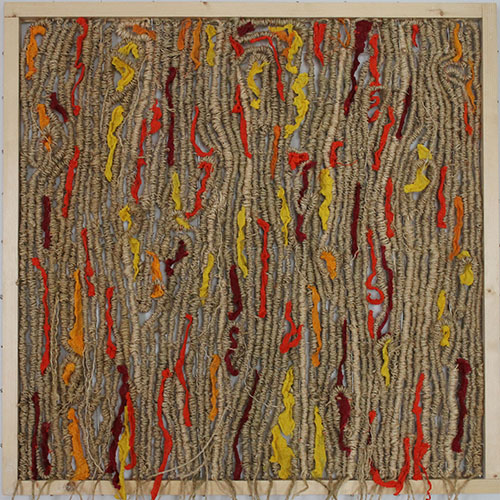
“Organic Growth” Sisal and Synthetic Fibre, 41″ x 41″
My inspiration stems mainly from the desire to rescue these materials from oblivion, from the narrow, purely useful viewpoint. I first acknowledge their contribution to our well-being and celebrate this by doing art. This is why wrapping string, discarded produce bags as well as plastic water bottles are the stuff of my personal expression.
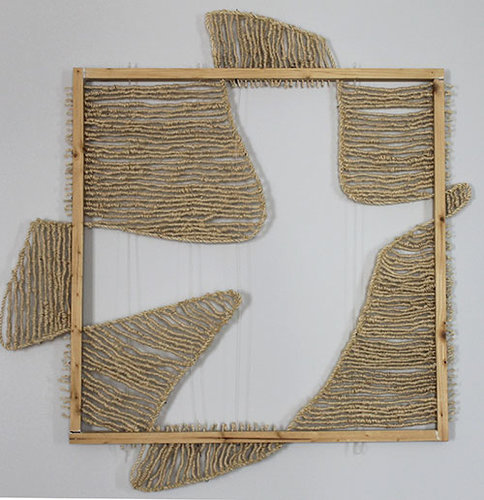
“The Bird” Sisal Wrapping String, 43″ x 43″
Given the abundance of inorganic matter around us, I’m always spurred into finding a creative way of organizing it. I’ve always been fascinated by the way archaeologists document and showcase extinct species; for example – butterflies. I use this similar approach in my work by gathering scraps of discarded materials and making a sort of inventory by means of an artwork.
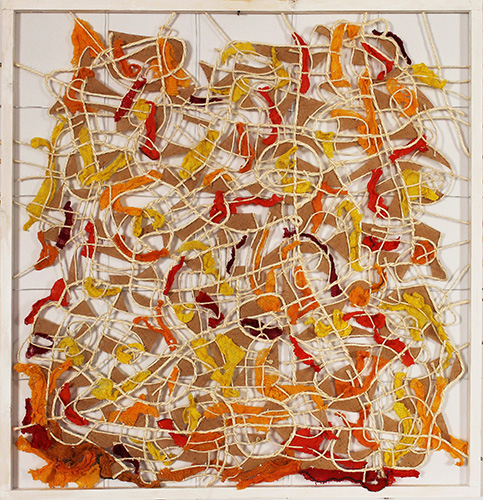
“Moving Matter” Sisal and Synthetic Fibre, 39″ x 41″
I question the possibility of reconsidering refuse materials beyond usefulness. Because a work of art is, by definition, useless, we’re naturally in a stance of praising matter for its own aesthetic virtues, beyond any tendency towards appropriation.
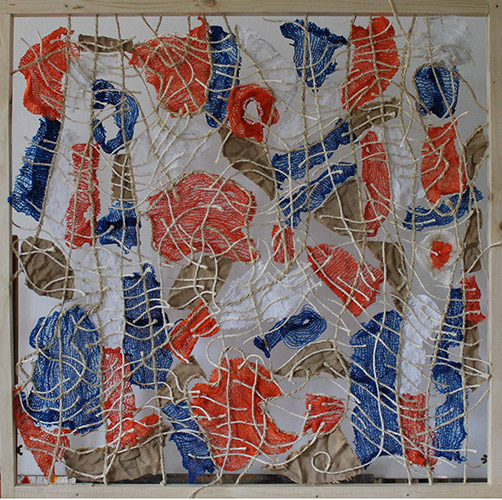
“Fossils” Sisal and Synthetic Fibre, 35″ x 35″
Using my personal, non-traditional, free-weaving technique allows me to juxtapose the organic fibre with the synthetic one. In nature everything seems to flow according to its own logic and movement; nothing is truly vertical or truly horizontal. I deliberately create a flowing warp and weft and open see-through breathing spaces so as to avoid a “tapestry” decorative effect and thereby enhance the materiality of the work.
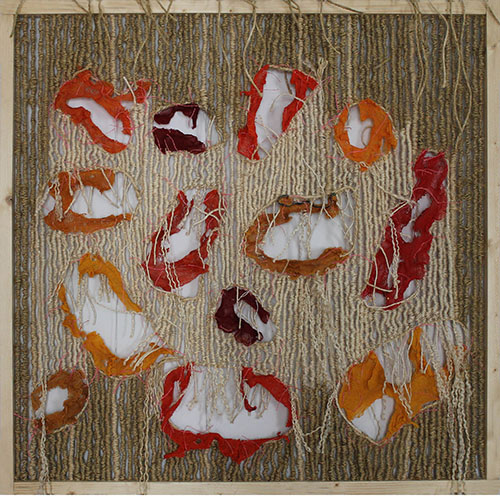
“Decomposed” Sisal and Synthetic Fibre, 48″ x 48″
The sense of ease I share with these fibres is certainly due to their lack of sophistication. As I wind and unwind the sisal string and heat and cool the synthetic matter I’m involved in the organic process of becoming. It’s the experience of being ordinary in the company of ordinary materials.
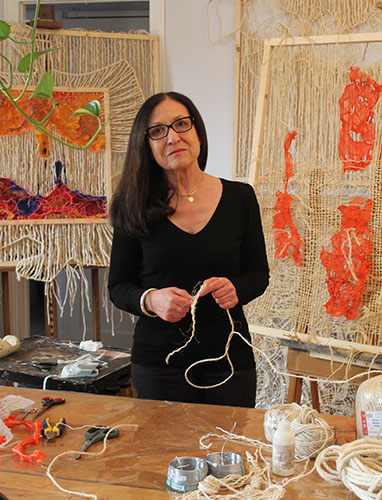
Artist Andie Grande in her workshop.
From this close contact energy springs forth where, unbeknownst to me, a new shared identity emerges. In crafting these materials, I find I myself am being crafted. There’s a flow between the “I” and the “other.” A bond is being restored and, perhaps, this is where true Beauty lies.
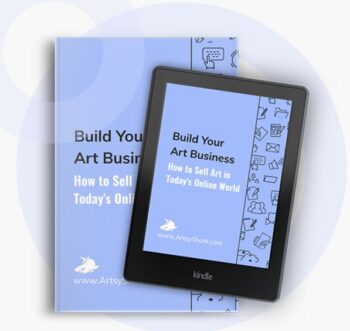

Speak Your Mind